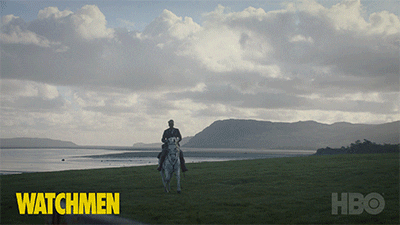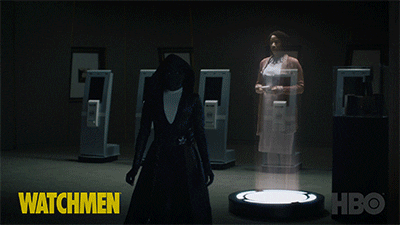It was good while it lasted, but now we’re staying in again
apparently. I’m sure that will
help. Naturally, while rushing around
seeing friends in the run up to everything closing again, talk turned, as it
often does, to boxsets that could help pass the time while we wait for unelected
government advisors to test their eyesight.
To anyone that will listen, I’ve been recommending Atlanta. The show had long been on my list of things I
must get round to, but it didn’t seem to be anywhere until its recent appearance
on the BBC’s iPlayer. Maybe it slipped on while they were busy
making VTs about how this year’s series of Strictly
is keeping to social distancing guidelines even though nobody cares anymore and
just wants to watch some dancing. Where
I failed in my explanation though was in bringing to life the joys of Atlanta and
why this is such a seminal show (it’s at number 124 currently on the IMDB list of top-rated shows, just
behind Line Of Duty, which, when you think
of how many TV programmes there are out in there in the world, is very good
going).
I’ll just wheel out some clichés here about why Atlanta
defies categorisation. It breaks the
mould. It’s one of a kind. It’s truly unique. Ok, there we go. Now let’s talk about Donald Glover. Our Donnie G is the creative force behind the
whole show. This is what made me realise
that I needed Atlanta in my life. Ever
since I finished all his episodes of Community
(Troy and Abed in the morning) there’s been a Troy Barnes-shaped chasm in my
soul. But gone are the bright smiles and
innocent confusion of that character.
Instead we have scowling, unkempt facial hair and almost everything
going wrong. In Atlanta, Glover plays
Earn, our leading man who isn’t really leading anyone anywhere (and is
remarkably generous about stepping back to let the other characters shine). We learn that he’s had educational potential,
but it’s not amounted to much, with him struggling to hold down jobs, find
places to live, care for his daughter and girlfriend. We see his mum barring him entry to the
house. Throughout all of this, though,
we root for Earn, a well-meaning everyman who’s often tested by but mostly
tolerates the nonsense and weirdness of those around him. And they are:
Van
Initially a background figure under the heading of baby momma,
it’s thanks to Zazie Beetz’s
magnetism that we’re grateful to see Vanessa step forward into focus as the two
seasons progress. She’s always
surprising, whether whipping out richtig gut German in Helen at a crazy Bavarian
festival (making it clear that we white folk are whack), dealing with her wasted
friends at a supposed Drake
party in Champagne Papi or struggling with an imbalanced and outdated
friendship in Value. These female-led
instalments have lower ratings than the others, but this is just one of life’s
great injustices. Van steals my heart
each time she rolls her eyes at others’ Instagram behaviour, so may we ever get
to see more of her.
Paper Boi
This is actually Alfred, Earn’s cousin and smalltime-going-on-bigtime
rapper. When he can’t get off the sofa
due to laziness, we really believe it, but Brian Tyree Henry
comes into his own when required to cold-hard stare at anyone spouting
nonsense. In Barbershop, his frustration
while trying to get a fade is so palpable it led me to sack off trying to pin
down a barber to cut my hair before lockdown.
His must-see moment, though, is in B.A.N. when he’s forced to answer for
his views on a late-night panel show, ambushed at every turn by
virtue-signalling wokeness while the awkwardness is interspersed with fake
adverts for African Americans on this pastiche of a popular channel. Spoof ads have always had a special place in
my amusement chambers and this episode delivers multiple belly laughs as a
result.
Darius
Mostly found in Alfred’s kitchen, Darius is never doing what
you expect him to. LaKeith Stanfield is
perfect at all times, never more so than when dealing with Teddy Perkins in a
Michael Jackson-alike episode.
The rest of Atlanta is populated by all manner of grotesques,
offering acerbic commentary on how race in the US interplays with wealth, work,
education, family life, music, social media and just about everything you can
think of. We have humour in the deadpan
observations, but also heartbreak in how easy it is to recognise these
inequalities as very very real. Atlanta’s
strength comes from making everything somehow universal so that you’re forced
to identify with the action as it unfolds.
But it doesn’t care what you’re expecting, calling to mind an I May Destroy You approach of drawing focus
to whatever is more interesting, not what necessarily seems best placed to come
next. As such, each episode creates a
work of its own, setting its own mix of characters, locations and times. The throwback to Earn and Alfred’s schooldays
seems at first leftfield, but artfully grounds what follows.
The soundtrack doesn’t stint on bangers and there’s even joy to behold in the opening credits. Atlanta appears somewhere on screen in its unmistakable font, but you need to keep your eyes peeled to spot it among the madness. I found myself tingling each time with excitement at the prospect of finding it, but maybe I need to get out more. But I can’t because I’m now government-mandated to stay in. The pandemic doesn’t stop there: it’s delayed production on the third series, automatically giving any return of Atlanta the epithet long-awaited. And I shall wait as long as it takes.





































